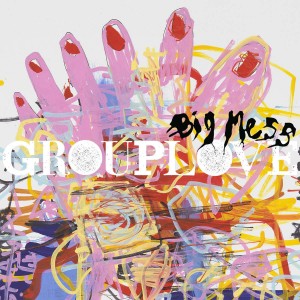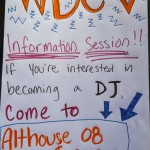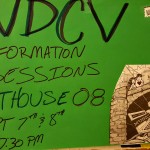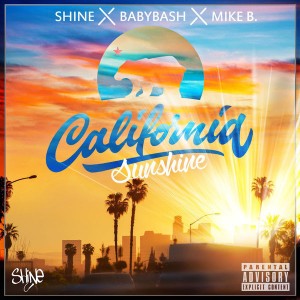
Credit: Stereogum
I’ve always loved A Tribe Called Quest. Over the course of six studio albums, the group, consisting of four core members (Ali Shaheed Muhammed, Q-Tip, Jarobi, and Phife Dawg) has always managed to cram an insane amount of messaging and lyrical genius into a single three verse track.
Their newest and final album, We Got It from Here… Thank You 4 Your Service was recently added to our featured artist binder and by no means does it disappoint. Here is my take on the album. Enjoy!
“I think that’s the main achievement of the Native Tongues. It just showed people could come together.”
A Tribe Called Quest is hands down one of the most prolific American rap groups. Formed in 1985 and now at the end of it’s nearly 30 year long career, the Queens, New York based group has certainly seen it’s fair share of ups and downs.
Their first album People’s Instinctive Travels and the Paths of Rhythm, released in 1991, set a tone that jived with other members of a (then soon to be) hip hop collective forming in the early 90’s in New York known as the Native Tongues. Not to be compared to similar commercial conglomerations of hip hop artists, such as Cash Money (boasting names like Drake, Nikki Minaj and Lil’ Wayne) or Roc-a-fella (Jay Z, Kanye West, DJ Khaled) the Native Tongues is simply a coalition of like-minded groups. Including Tribe, De La Soul, and the Jungle Brothers, the Native Tongues promote good-natured, positive messaging with a healthy dose of social commentary regarding issues such as race, ethnicity, spirituality or even just enjoying a night out. Thanks in part to their subject matter, jazzy samples and afrocentric influences, the members of the Native Tongues became pioneers of a completely new genre of hip hop, come to be known in some circles as Conscious Hip-Hop or Jazz-Rap.
Q-Tip, of Tribe, had this to say regarding the first time he met the members of De La Soul
“I remember Afrika called me that night, like, two in the morning. ‘Yo these kids, De La Soul, you gotta meet ’em! I swear we’re just alike!’ I went there, met them, and it was just f****n’ love at first sight. It was disgusting. In hip hop, it praises individualism. I think that’s the main achievement of the Native Tongues. It just showed people could come together.” (Coplan 2014).
Beef that was hard. Beef that was funky
However as with most music groups the unity only lasts so long. The 1998 release of their last studio album, The Love Movement unfortunately came coupled with the ugly surfacing of an undisclosed interpersonal issue, in short, Beef.
Solo ventures and a reunited 2006 tour aside the group was pretty much silent. No new music, no new Tribe.
Until Now.
“For us, we’re just lonely musicians and artists. We shout sh*t out and we try to articulate things and put it in an artistic fabric.” (Q-Tip)
From this point dear readers, I will tackle said articulation, reviewing 4 songs off of each disk. To generate these reviews, I will be providing my interpretations, thoughts, and analyses of the lyrics, samples, and musical elements found within each chosen track. additionally I will be drawing from analyses and interpretations of the lyrics found on the amazing website genius.com . If you are a fan of hip hop music at all, I strongly encourage you to find this website.
With that being said, I would like to make it clear that by no means am I claiming authority over these words. I have nothing but the deepest appreciation and reverence for these songs.
Let’s kick it.

Photo Credit: Mr. Timney
“So all you bad folks, you must go”
While it would make sense to start off with he first track, I consider that one best suited to be talked about the end. First I’ll start with number two.
We The People…
This track is hard. A vicious distorted synth-line and crunchy drums let the listener know that absolutely zero punches are about to be pulled. One feature that I noticed right away and I think is amazingly effectual are the jagged breaks in the beat in the opening verse by Tip, the man himself. They leave vast swaths of silence for Tip to let us know how he feels about the state of affairs.
A more subtle note that I picked up after a few listenings was the addition of the air raid siren. Usually a long, droning tone that is identifiable to most, when separated by the breaks it gives the beat a singular through tone when the drums hit again. What I think works the most about this element is that the sample plays through the breaks even when the sound is out. Instead of restarting the siren when the beat comes back in, the tone has been going the whole time so the listener is presented with a completely different tone from the one that went into the break. A tiny element in a huge collection of sounds but an amazing moment of producing that results in a perfectly polished product.
While all the verses are jam packed with meaning and significance lines like “When we get hungry we eat the same f*****g food” stand out to me because they reinforce the simple fact that we are all humans. This line hits especially deep at a time when our country is the most starkly divided it has ever been. people need to realize that when you strip away all of the bullsh*t of our lives we all eat ramen when we get hungry.
Another series of lines that stick out to me are:
VH1 has a show that you can waste your time with
Guilty pleasures take the edge off reality
And for a salary I’d probably do that sh*t sporadically
I love these. These are thoughts I have almost everyday that as a society we are too busy stuffing distractions into our brains that we ignore, hide from, and deny larger issues plaguing us as individuals and as a whole. Tip’s syntax of “taking the edge off of reality” is similar to that which is used when referring to drugs being an escape for some and I think when utilized in a socially “connected” twenty first century context these words ring true as hell.
A review of this song however would be completely remiss without addressing the hook.
All you Black folks, you must go
All you Mexicans, you must go
And all you poor folks, you must go
Muslims and gays, boy, we hate your ways
So all you bad folks, you must go
To even the most casual of Tribe listeners these are completely antithetical notions to pretty much every philosophy the group has ever held, so unless they became awful people over the course of 1 song, this is a powerful message. In my head I’m conjuring up images of parents confiscating their children’s phones, screening their music, and finding these lyrics. In my mind this scenario has three outcomes. 1) The parents get what Tip and Phife are preaching and congratulate their child for having such good taste in music (the ideal scenario). 2) They hear the words, overreact and take away the child’s music because they ‘don’t like these hateful bigoted messages in rap music these days.’ Or worst of all 3) they actually agree.
Never has a hook on any singular song been so wrenchingly powerful.

Credit: Mike Mozart
“F**k it, I’m already grown”
Speaking of Kids and a younger generation of listeners that brings me to the next track from disk 1
Kids…
Featuring the ever elusive Andre 3000 this track addresses the younger generation of hip hop heads that are either on the come up or just feel like the adults in their lives don’t really understand what they are going through. In this track 3 Stacks and Tip are reinforcing the message that has always needed to be said which is that parents do get it. Throughout many of the lines Mr. 3000 references times when he or other adults went through some of the same things that kids these days are going through.
The hook, “Kids don’t you know that all this sh*t is fantasy?” is a dual edged message I presume. On one hand its a message that the quote-en-quote celebrity lifestyle is for the most part an unobtainable fantasy and that everything they are presented with on a daily basis is also a fantasy, crafted by their parents or people around them to protect and shelter them from harsh realities. Both messages hit home no matter how you choose to interpret it.
The production on this track is also pretty unique. It doesn’t really fit into the jazzy, sample heavy Tribe sound that’s typical but I think the spooky sounding synths and simple beat works well with the sound that 3 Stacks is providing. I don’t think the lyrics would resonate as well without such an unsettling atypical sound underneath them.
Overall, a powerful, timeless message firmly rooted in valuable insight from a more experienced generation.
You gotta put this on
Enough!! is the last track on the first album and I consider it to be a really nice pallet cleanser after some of the heavier and more serious subject matter of the other tracks. Gone are the somber lines urging the country to shift its ways and instead they are replaced by a funky beat accompanied by an angelic vocal sample floating above the hook unconcerned by our earthly dilemmas.
So what is this song about you may ask dear readers? A romantic endeavor, simple as that.
This song is especially unique in that Jarobi lends his lower and scratchier voice to the mix as he weaves his rhymes in and out of time with the groovin beat. Jarobi, while without a doubt a member of Tribe, doesn’t appear often on tracks and his contributions to this new album as in Enough!! are welcome funk-nuggets that are impossible to go unnoticed when heard.
What immediately stood out to me the first time I listen to this song was the scratch sample that the DJ was using. The almost sitar-sounding riff thats being worked in is noticeably the same one from a none other that Bonita Applebum, a timeless Tribe classic. This is just another great example of how a tiny little detail can make an entire track. By throwing it in the mix, they recapture that amazing old school Tribe sound and stay so true to their roots.
Also, this track just reinforces that even after all this time Tribe still maintains a certain versatility in their sound. A trait not found in most hip hop now-a-days. It’s amazing that they can flip a switch and go from a commentary heavy track like We The People… to one with a completely different vibe to it that just puts all of the somberness aside to focus on just having a good time.
A practice I personally believe we could all benefit from on occasion.
Regardless, Enough!! is an excellent way to end disc one and you better believe dear readers that there’s a whole lot more waiting around the corner on disc two.
“Hamdulillāh, my crew’s back to workin'”
The second track off of disc two is a burner. Black Spasmodic derives a lot of its sound from the off-beat heavy sounds of reggae music and when combined with some really power messaging in the verses it makes for one of the most powerful track on the whole album.
For the uninitiated, reggae music is dependent on a rhythmic structure that’s pretty different that what I’m sure some of us are used to listing to. Where usually the rhythms in a song would be set up to land on the downbeats, reggae is the opposite. The emphasis is almost always placed on the offbeat. Let’s say that you are counting a song in 4. You would count 1, 2, 3, 4 placing emphasis on the down beats (the numbers). Now if this were reggae, you would count it 1 AND 2 AND 3 AND 4 AND with the emphasis falling on the space in between the numbers (or the offbeat).
This use of this reggae sound is most likely meant to pay homage to Phife’s Trinidadian roots. In his verse Phife even refers to himself as the “Trini gladiator” so it only stands to reason dear readers that these were the motivations behind the beat.
The line at the beginning of this segment is the most resonant one for me in Phife’s verse. In arabic Hamdulillāh means “Thank You God” so when Phife throws that in there its an amazingly sweet sentiment that he’s sharing with the listeners. He’s glad that his crew is back together and is thanking the God above for making it happen. The theme of spirituality doesn’t stop there however.
Tip also works it into his verse when he is heard to be channeling Phife from the afterlife. “Not through evil mediums” Tip asserts, but through making music, a passion assuredly shared by two close friends, is he able to communicate with Phife and finish out the song rapping as the Five Foot Assassin himself.
“I expect the best of you I’m watching from my heaven view” are some of the most wrenching in the whole album as Tip really can feel his friend looking down and watching over the crew. It’s such an immensely felt moment and one of the best in rap music to date.
The sentiments to the late-great Malik don’t end with Black Spasmosdic.
Lost Somebody is the tribute song to Mr. Izaak and with Tip and Jarobi sharing their thoughts and memories about their loved one this song speaks for its self.
Rest in peace Phife.

Credit: fuseboxradio
“As if this country ain’t already ruined”
Conrad Tokyo is one of the tracks that will stick in your head and theres nothing you can do about it. Featuring Phife Dawg and Kendrick lamar this track is another commentary heavy one. The title however has an interesting meaning to it that I only learned with the help of the analysis on Genius.com.
Apparently the Conrad Tokyo is one of the fancied hotels in Tokyo so by using the words “Conrad Tokyo Sapporo Pistachio” in the hook the Tribe cold be trying to make a commentary about classist societies where the division between the rich and the poor is incredibly wide.

Credit: Moyan Brenn
Additionally Phife also throws in digs at CNN and the “F***ery” surrounding the current election cycle. Clearly Phife was writing this in a moment that was pre-election and calling out the media for making a joke out of the whole thing rather than using their power responsibly.
Oh yeah, also Kendrick is on this track. His incredibly one of a kind voice meshes perfectly with the Jazz Rap sound that Tribe is known for which makes him more than a welcome addition to the album in my book. In his verse he brings up issues of gang violence and general discontent with the way the country is being run; poignant as ever for the cultural moment we face today.
The jazz keyboard solo as the outro is also a welcome reminder that not only do these artist make great art, they can also appreciate it. Totally one of my favorite tracks.
“He’s the Trini Gladiator ain’t no need to take it further”
The last track of we got it from here is entitled The Donald. While the political impetus this track is clear from the title, no where in the the verses do they call out, or diss our president elect. Instead this song is yet another tribute to our man Phife Dawg, or as he is sometimes to referred to, Donald Juice. This is yet another one of his nicknames and can be heard clearly in the interlude sections of this track.
In fact the subject matter of this song is pretty much just about Phife Dawg being a dope rapper. He calls out sucka emcees who use their iPhones or Blackberries to freestyle and even says that he’s ready to battle whenever. Busta Rhymes makes an appearance on the hook to show his solidarity to his Trinidadian brother.
Our President-elect does make a slight appearance though, when the DJ decides to use a sample of a news anchor saying his name to perform some creative scratching. I think it’s a tasteful way to not only show respect for an amazing rapper but also point out how repetitive the mainstream media is now a days. It seems like every time his name is said it both gains and looses meaning for the listener. I find it interesting to think about how we have all been affected by the past year for the worse, and the title of this track is a great example. We are all primed now to immediately make these political associations without even listening to the song.
We are literally judging a book by it’s cover.
It would be interesting to picture a version of this album that came out in 2014 say, when we were not so obsessed as a nation over a singular entity. In a way I think this song is pointing that out. ATCQ could’ve named this song this song in memory of their beloved friend but instead they are now creating an expectation of commentary in their listeners. I can only assume that this was intended on the part of the group seeing the current cultural moment we are experiencing.
“Imagine if this sh*t was really talkin’ about space, dude”
So dear readers we’ve made it to the end, or shall I say the beginning? While I’ve taken you on (believe it or not) abridged tour of the Tribes latest contribution, there has been one song that I decided to omit until the very end. I feel it’s fitting this way.
Space Program is the first track on the album and perhaps the most significant. Making heavy use of samples both before and after the music the Tribe makes some heavy didactic statements. Lines like “It’s time to go left and not right” set a political tone and coupled with a hook like this its pretty clear that the Tribe is not happy with the way things are going.
Additionally, Tribe is using some clever wordplay with the title to grapple with the issue of urban displacement. The lines:
Moved you out your neighbourhood, did they find you a home?
Nah cypher, probably no place to
Imagine if this sh*t was really talkin’ about space, dude
Show their discontent with the way that the underprivileged are being discriminated against even today. Tip also has lines about our massive media consumption and how we are ruining our own lives. one particularly resonant section reads;
Now, people on top of people, feels like we can’t breathe
Put so much in this muthaf***a, feel like we shouldn’t leave
Put it on TV, put it in movies, put it in our face
The outro is really where this song comes into its own and really is addressing not only the listeners, but human everywhere.
Gotta get it together for brothers
Gotta get it together for sisters
For mothers and fathers and dead niggas
For non-conformists, one-hitter quitters
For Tyson types and Che figures
Make, make, make
Let’s make somethin’ happen, let’s make somethin’ happen
Let’s make somethin’ happen, let’s make somethin’ happen
Sung by Phife, the outro is especially disturbing as the person pleading for an end for needless killing was taken from us so suddenly and entirely too soon. Making something happen is a powerful message that personally speaks to me and my own philosophies.

The tribe launches into track two with the help of Mr. Gene Wilder. They chose to include the segment of Willy Wonka and the Chocolate Factory where the whole gang is passing through the tunnel on their way into the factory. It’s an incredibly poignant clip and it’s chaotic and orgiastic sound mirror the fretful times we are experiencing as a nation.
If you only listen to one song from this album, make it this one. The sound, messaging, and energy behind this track exude Tribe and everything they stand for.
Thank You
To everybody involved in the making of this album I can only say thank you. You have produced one of the most beautiful pieces of not only hip hop music, but also true, honest socially conscious art I have ever been exposed to. It pains me to know that this will be the last music from you guys, but I consider it fitting. I only hope you shouted it loud enough for people to listen and start making something happen.
We all know its whats we need most. Now more than ever.
Rest up Phife. You done good.

Credit: The Source












